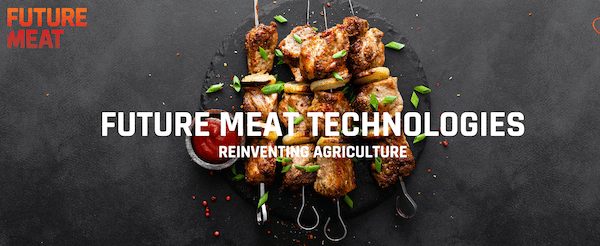Most of us in the livestock industry have been shocked by the rising popularity of so-called fake meat products from the likes of Beyond Meat and Impossible that went mainstream last year. These “plant-based” products proved more popular among consumers than many had thought. But there is another threat that is gaining more traction that the industry needs to plan for – “cellular meat”.
Memphis Meat, one of the leading cell-based meat companies, announced in January that it raised a $161 million Series B financing round that includes some big-name backers, including Tyson and Cargill. They are one of a number of companies trying to produce from animal cells rather than the actual animals. According to Memphis Meat, consumers won’t be able to tell the difference between its product and the real thing.
The names cellular meat, cell-based meat, cultured meat, and lab-grown meat all sound unappetizing to me, personally. But these products will target the same crowd that has elevated plant-based fake meat to its current level of popularity. That popularity comes in spite of the large body of evidence that shows these products aren’t really any healthier than real meat. In fact, they may not be any more environmentally friendly, either, which has been a big selling point. But consumers don’t seem to care. At all.
With that in mind, it seems like a big mistake to discount this new product. Much of the cell-based meat industry’s target market is likely tech-savvy enough to wrap their heads around the science and not be scared off. These consumers are also highly motivated to support companies that boast processes friendly to both the environment and animals. And cellular meat might be able to beat plant-based options on both those fronts.
Cellular meat has a way to go before hitting supermarket shelves. The USDA and FDA announced last year that the two will jointly regulate the industry, which does give these products a path to commercialization now. It’s unclear how long it may take to clear the regulatory hurdles, though, mostly because the agencies don’t have a regulatory framework in place to deal with them. Memphis Meats said it is working with regulators to ensure a “safe and timely” market entry, though no timeline or launch date has been announced.
Memphis Meat is forging ahead anyway. The company intends to use its latest cash infusion to open a factory where it can produce prototypes for potential customers. The company says it will take about 18 months to two years for the plant to be up and running. In that time, one of the company’s big challenges will be to figure out how to lower costs.
Another company, Future Meat Technologies, recently raised $14 million in new financing to build a pilot manufacturing facility with a main goal of lowering the production costs of cell-made steak down to $10 per pound. The current price of production for a hamburger is around $11.36 per pound and reflects the cost of producing it in an unscaled environment (i.e. Petri-dishes). Once they scale the product, it will be immensely cheaper to produce.
To get an idea how fast costs have come down, consider that in 2013, Mark Post, a Dutch scientist and the co-founder of Mosa Meats, became the first person in the world to make a cell-cultured beef burger. The process he used took three lab technicians about three months to turn out a one-pound burger, which cost more than $278,000 to produce.
The cost factor will likely be helped along by the huge amounts of funding these companies are pulling in. Investments in cultured meat start-ups increased more than 120% between 2018 and 2019. Several companies, including BlueNalu, Future Meat Technologies, Finless Foods, Wild Type, and Aleph Farms, all raised more than $10 million last year, bringing the total amount raised by cultured meat start-ups since 2015 to more than $155 million. That number was doubled with Memphis Meats $161 million fundraise.
Future Meat Technologies aims to launch hybrid products, which combine plant-based protein with cultured fats, as early as 2021, followed by 100% cultured meat products in 2022. Dutch start-up Meatable is using the $10 million in funding it received in December to launch a pork prototype this summer. The company plans to have a full-scale plant up and running by 2025. Check out their site HERE . Again, don’t shoot the messenger, but I included a few pics from the Future Meat website that helps better show what’s coming our direction. Like everyone else, I’m still trying to better understand what percentage of the market “cellular meat” will win over and what percentage of the market they will gain longer-term as they eventually work their production cost down lower and lower. On the flip side, the more traditional livestock producer is batteling higher costs often associated with more government hurdles relating to climate change, clean energy, water conservation, etc. The battle-lines are certainly being drawn… (Sources: Quartz, CNN, Food Business News, AgFunder)













